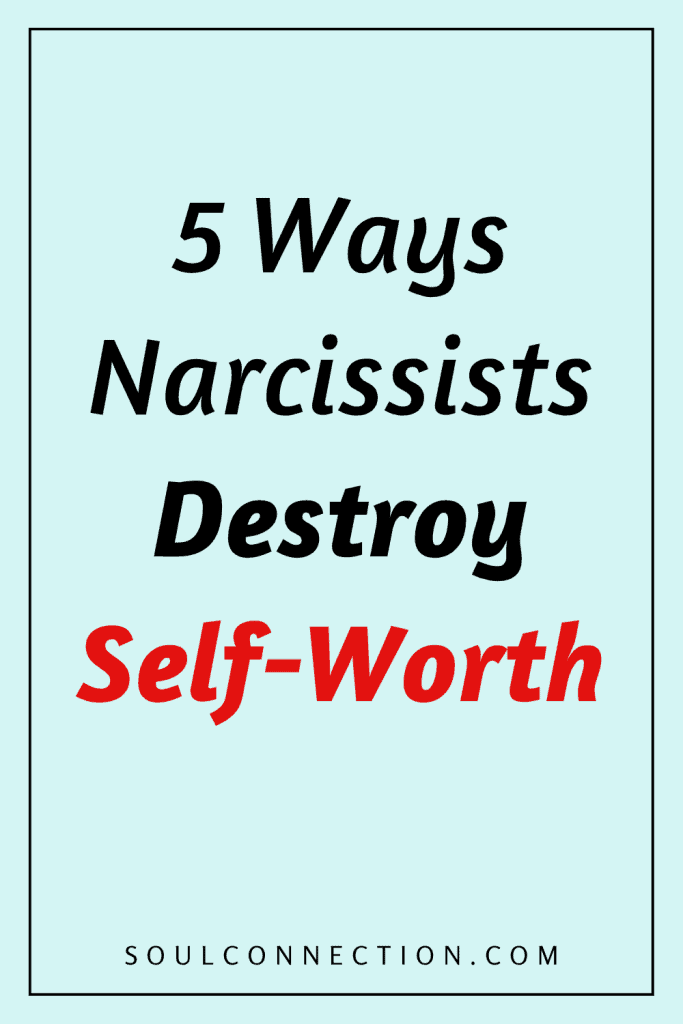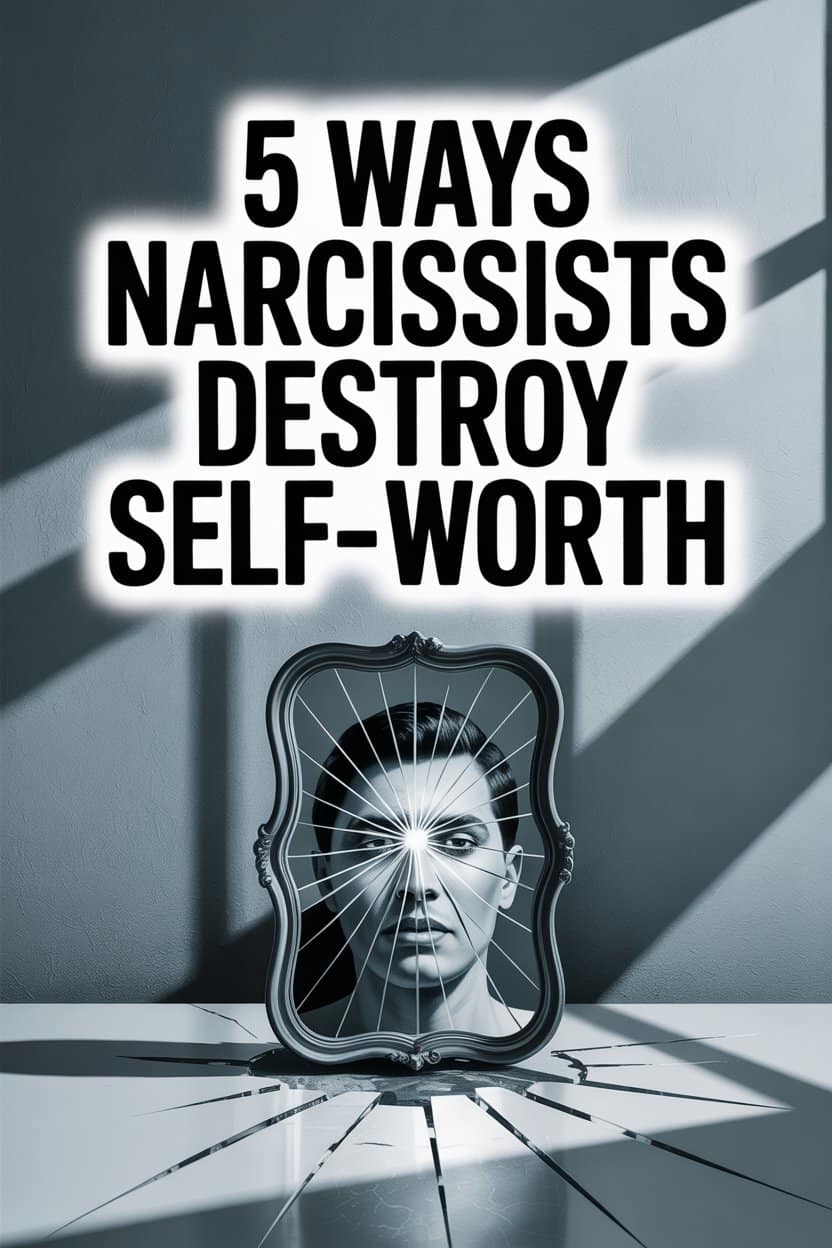Think you’re just imagining things when your confidence seems to wither after spending time with a certain someone? Spoiler: it’s not your imagination.
When a narcissist enters the chat (or, more accurately, your life), self-worth can start circling the drain faster than a slab of butter on a hot skillet. The worst part? It’s all so subtle—until it isn’t.
Here’s how narcissists manage to knock the shine off even the brightest self-esteem, and what you can do to buff yours back to brilliance.
1. Gaslighting Till You Question Reality
Narcissists have mastered the art of gaslighting. Not the fun, cozy kind you find in a Dickens novel, but the kind that makes you wonder if you’re losing the plot completely.
Maybe you express hurt after a rude comment, only to be told you’re “too sensitive.” Or you recall a conversation—word for word—just to have them insist, “That never happened.”
The result? Reality feels more slippery than a politician dodging a question.
Over time, this relentless rewriting of history erodes your ability to trust your own perceptions. Suddenly, you’re second-guessing everything—your feelings, your memory, your common sense.
Confidence? That’s now a distant memory, along with the last time you trusted your own judgment about anything.
So, what helps? Anchoring yourself with evidence. Write things down, confide in trusted friends, and don’t rely on the narcissist as your sole source of truth. If it feels off, there’s a good chance it is.
2. Death By A Thousand Criticisms
A narcissist rarely misses an opportunity to “helpfully” point out your flaws. Oh, your shirt doesn’t match your shoes? Interesting choice. You left a crumb on the bench? Clearly, you’re a monster.
This isn’t constructive feedback designed to help you grow. It’s criticism dressed up as concern, and the aim is to chip away at your self-worth with relentless efficiency.
Compliments, when they come (don’t hold your breath), are usually backhanded or so faint you need a microscope to find them.
Start internalizing enough of this, and you’ll buy into the idea that you’re never quite good enough—for them, or for anyone else.
To fight back, start keeping your own highlight reel. Make a note—mental, written, sky-written if you must—of your wins, no matter how small.
Surround yourself with people who see your strengths and remind you of them. Petty criticism is a reflection of the critic, not the target.
3. Withholding Approval Like It’s Gold-Plated
Ever noticed how the narcissist’s approval is harder to earn than a seat at Parliament? No matter what you do—land your dream job, run a marathon, bake the world’s best banana bread—their response is lukewarm at best, frosty at worst.
This isn’t an accident. By keeping you hungry for praise, they keep you dancing for their attention. You end up measuring your worth against their ever-changing standards, rather than developing your own.
Don’t get stuck in their never-ending audition. Start celebrating your achievements independently. Set your own benchmarks, and actually allow yourself to feel good when you meet them.
If you’re waiting for a narcissist to hand you a gold star, it’ll be a long, cold winter.
4. Playing The Comparison Game
Narcissists love comparing you to others. “Why can’t you be more like her?” “He would never forget my birthday.” Bonus points if the person you’re being compared to is someone you can’t stand.
This constant comparison is designed to keep you on the back foot, always striving, never arriving. Eventually, you start to believe the hype—that you really are falling short, and everyone else has it figured out (spoiler: they don’t).
Remember, comparison is the thief of joy, and in this case, it’s got sticky fingers. The best way to shut it down? Flip the script.
When the urge to measure yourself against others creeps in, ask yourself: would you talk to a friend this way? Unlikely. Treat yourself to the same kindness.
5. Turning Affection Into a Bargaining Chip
Narcissists can be surprisingly affectionate—when it suits them. One minute, you’re on the receiving end of grand gestures and sweet talk; the next, you’re plunged into the emotional Arctic Circle, shivering in the absence of affection.
This hot-and-cold routine isn’t a sign of “passionate love” or some tragic, misunderstood soul. It’s control, plain and simple. When you behave in ways they like, you’re rewarded with attention.
Step out of line? Cue the silent treatment or withdrawal of love.
Attachment becomes contingent on your ability to please them, and self-worth becomes a hostage. And the ransom? Abandoning your authentic self to keep the peace.
Break the cycle by reconnecting to other sources of love and validation—friends, family, pets, hobbies, yourself. Affection that comes with a price tag isn’t love; it’s manipulation.
How To Start Reclaiming Your Self-Worth
Living with or loving a narcissist can turn your self-assurance into Swiss cheese. The good news? Those holes can be filled.
Try setting boundaries, even if it feels foreign (and it probably will). Distance—emotional or physical—can help you hear your own voice again, instead of their running commentary.
Therapy, if available, is a game-changer, and there’s zero shame in asking for help.
Above all, give yourself credit for surviving in the first place. Narcissists are experts at making others doubt their value.
The fact that you’re reading this—looking for ways to reclaim your self-worth—means you’re already braver than you think.
And if, occasionally, you find yourself fighting the urge to throw a shoe at the wall in frustration, know this: you’re not alone. Self-worth isn’t lost forever; it’s just waiting for you to show up and claim it back.


